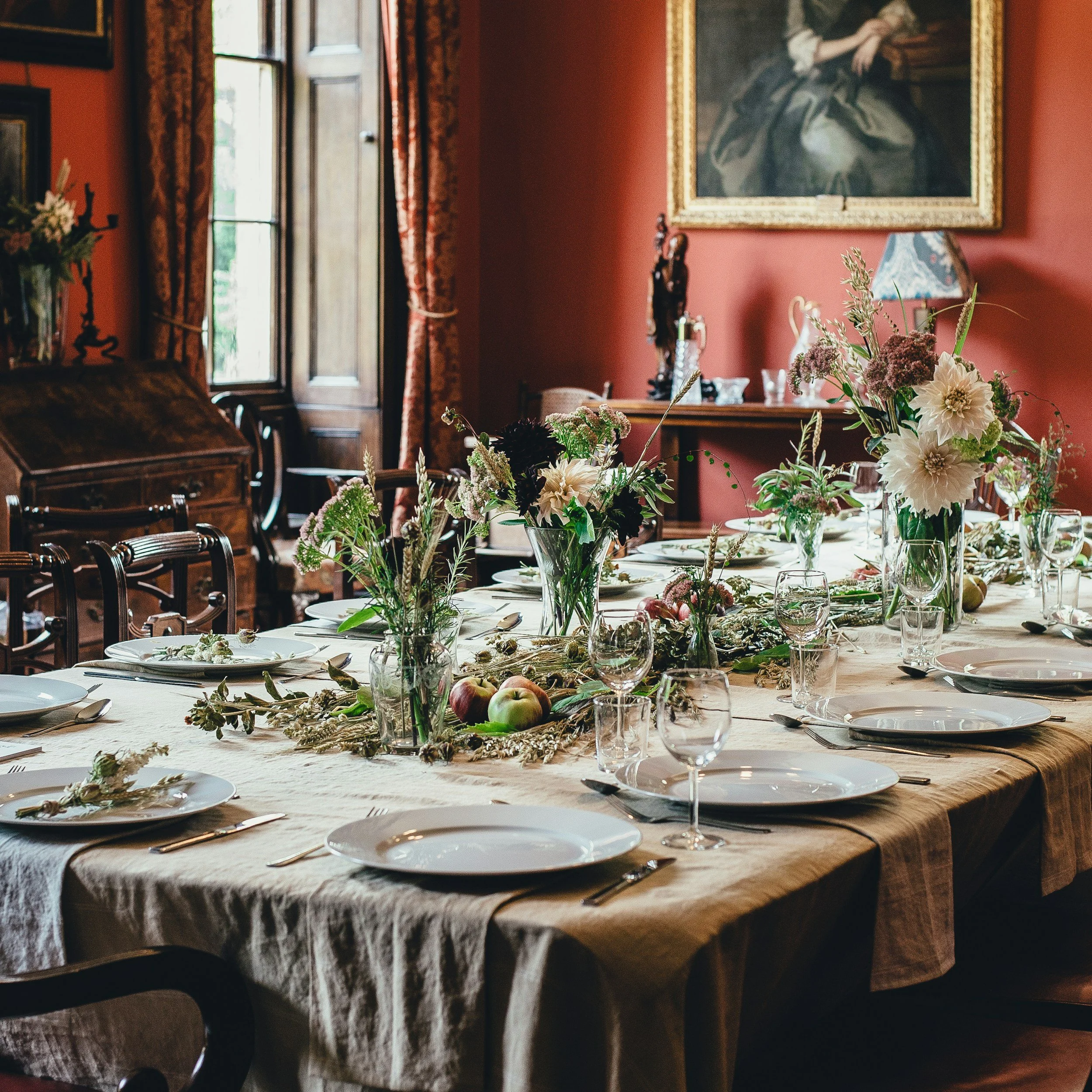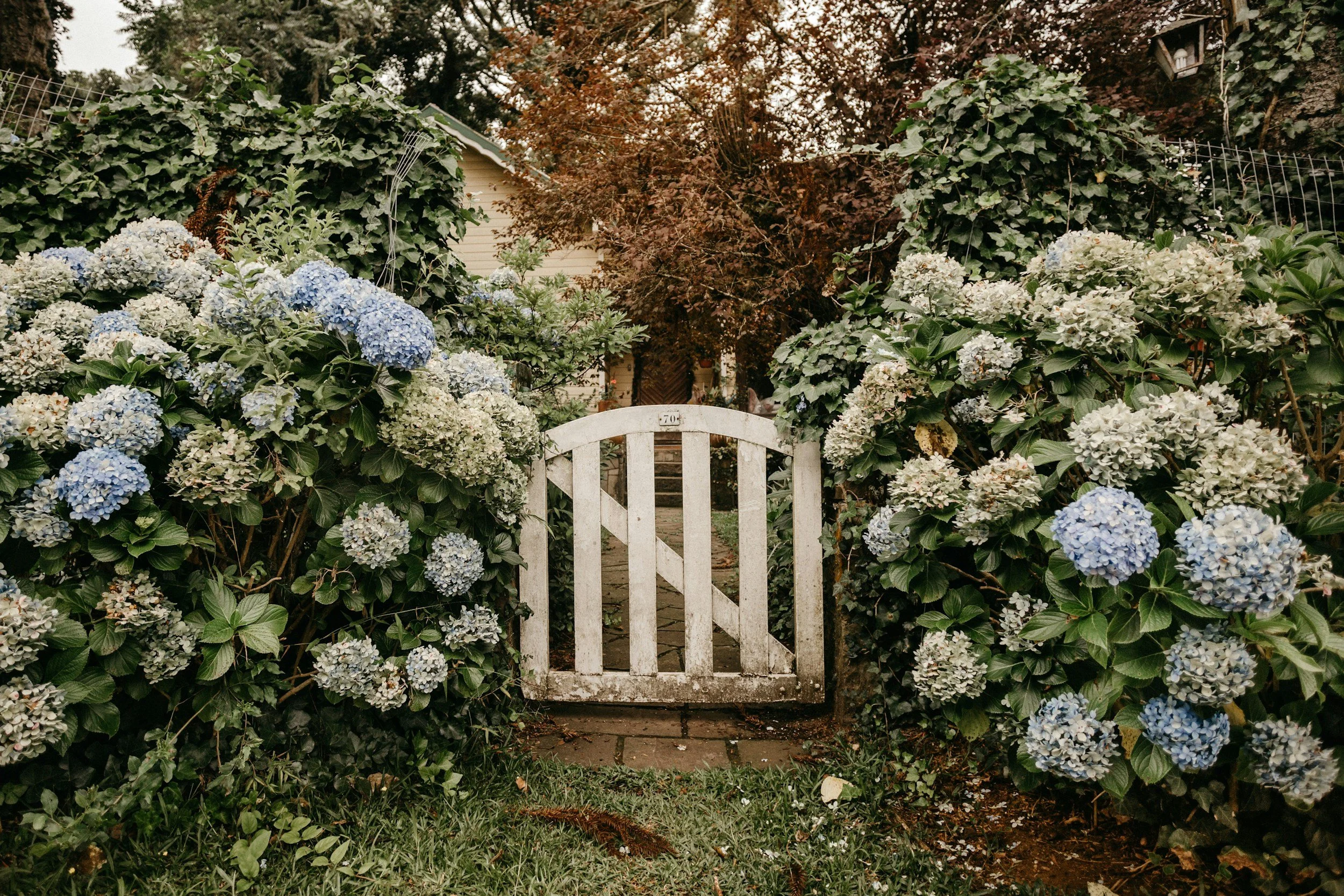The Hour for Etiquette (#13)
Late August, 1912
There are afternoons that pass without consequence, soft and sunlit, the sort that leave no impression beyond a faint warmth upon the skin. But this particular afternoon was not one of them.
Lady Elowen’s garden tea was arranged with her usual elegance: trailing roses over the lattice, glass dishes of sugared cherries, embroidered linen beneath the china. The guests were perfectly placed, as if arranged by the hand of some unseen hostess in the sky. Every colour chosen, every seat strategic. Matchmaking, I believe, has never been so delicately weaponised.
I was seated between Miss Daldridge and Isobel Sterling. It was not a coincidence.
Earlier, Lady Elowen had leaned toward me with gentle intent. "The younger girls could benefit from your guidance, my dear," she said, resting a hand on my wrist. "There are few left with your understanding of the social rhythms."
Understanding. As though I had mastered the dance, when in truth, I had only learned to move without showing the bruises. I am no longer certain that is wisdom.
Miss Daldridge, all brightness and chatter, embraced the suggestion with delight. "Oh, Lady Bergamot, I should so love to hear your advice. I always imagine you must have had the most poetic courtship."
I smiled, carefully. "Not every courtship is a poem, Miss Daldridge. Some are more akin to treaties."
She laughed, entirely unbothered. "But surely there was a moment. A romantic gesture? A letter, a gift, something?"
At once, the memory stirred: a volume of sonnets, faintly annotated in his hand. Not Lord Bergamot’s. The other one’s.
"The most thoughtful thing I ever received," I said, choosing my words with precision, "was a book, marked gently in the margins."
"Ohhh," she sighed. "That’s very fitting for you. Who was it from?"
I tilted my head, sipped my tea, and let silence carry the answer.
Miss Daldridge gave a delighted gasp. "Oh, it was Lord Bergamot, of course."
Isobel, beside me, remained quiet. Her eyes drifted across the lawn.
Mr. Everett had arrived during the first course. He offered his greetings with polite ease, spoke briefly to Lady Elowen, and positioned himself near the lemon tree. Not too close. Never too close. But within view.
Isobel watched him. First shyly, then with a steadier gaze. She is young, and her longing has not yet learned how to hide.
He looked her way only once. A nod. Measured. Courteous. It meant nothing. It meant everything.
I turned my focus to the embroidery hoop in my lap. I have never sewn well, though I have learned to pull a needle through cloth without flinching. The pattern was forgettable. Ivy trailing a fence. But the repetition calmed me, steadied the breath I had not noticed was quickening.
After a while, Isobel asked softly, "Do you think a gentleman always knows when he is admired?"
I met her gaze. Her pale eyes held all the questions she dared not voice.
"Not always," I said. "But sometimes, I believe they pretend not to know, for fear that acknowledgment would require too much kindness."
She looked down, her fingers curling near the hoop.
Miss Daldridge broke the quiet with her usual candour. "I would simply ask. I cannot bear waiting in silence for someone who might never act."
"You are fortunate," I replied gently, "to live in a time when asking might be seen as boldness, rather than impropriety."
She laughed. "But surely boldness is admired now, if it is charming enough."
I said nothing. There is no charming boldness for women like me. Only the sort that leaves the rest of life slightly dimmer in its wake.
A breeze passed then, subtle but sure, lifting the edge of the lace cloth and bringing with it the scent of pressed lilac and damp earth. The air felt watchful, as if the garden itself was listening.
Lady Elowen proposed a walk through the garden once tea had been cleared. We followed the winding paths lined with heliotrope and foxglove, skirts brushing the thyme that grew wild beneath the hedges.
It was then that the note slipped. A folded scrap I had tucked into my reticule. Something written in haste earlier that morning, when the ache pressed too near. I had not meant to bring it. I had only tucked it away for safekeeping, a place to silence it.
But as I drew a handkerchief from the mouth of my bag, the breeze — sudden and sharp — caught the edge of the folded paper and lifted it into the air. It danced once, then settled at the base of a lavender shrub.
Miss Daldridge spotted it at once and stooped to pick it up.
"Oh, what is this?" she asked, unfolding it before I could intervene. "A secret!"
She read aloud: "I wake each day knowing he will never be mine, and yet every breath I take is shaped by the thought of him."
There was a hush. Then laughter. Light, unknowing.
"It sounds like something from a gothic novel," said Lady Kent, taking it next. "Oh, the melodrama."
"Whose pages did this fall from?" Miss Daldridge asked, holding it aloft.
My breath thinned.
"It must be fiction," someone offered. "No one writes like that anymore, except for publication."
No one looked to me. And I, mercifully, did not speak.
Miss Daldridge was delighted. "A mystery, then. How romantic."
She waved the paper in the air like a found treasure. "I do adore a good fragment. It feels like overhearing a secret."
Before I could stop her, she turned toward the group of gentlemen lounging near the stone urns. "Sirs, we are in need of your literary minds," she called. "Come settle a matter of authorship."
My heart lurched. But no one looked my way.
Lord Bergamot, deep in conversation with two baronets concerning the acquisition of a sporting dog, did not glance in our direction.
The note made its way around the little circle, each woman adding her own amusement.
Only one man joined them, at Miss Daldridge’s urging. Mr. Everett took the page, glanced at it. A quiet flicker of recognition passed through his features, followed by the smallest, almost imperceptible smile.
"It is a shame," he said, his voice thoughtful, "when something like this is written instead of spoken to the one it belongs to. There is nothing worse than not knowing if your love is returned.” He paused, thoughtfully. “And nothing better than learning that it is."
His tone was light enough to pass as musing. But it struck me with the weight of certainty.
He folded the paper once, then again, with the slow care of someone who had touched something private. He did not say another word. But he looked at me.
He knew.
Lord Bergamot, thankfully, remained in conversation nearby, laughing over cigars.
The walk resumed, but my mind was untethered. Isobel, perhaps sensing it, stayed close. As we paused by the sundial, she leaned nearer.
"Do you think love is always a choice?" she asked quietly.
I turned to her, surprised. "Why do you ask?"
"Because I think sometimes it chooses us. And if that happens, I wonder whether we are still responsible for the consequences."
Her words struck with an accidental precision.
"All things that bind us," I said after a moment, "begin with something that feels impossible to refuse."
She nodded, not fully understanding, but grateful. Her hand brushed mine lightly, and I felt a sudden grief that she still believed love and kindness always walked in the same shoes.
A shadow crossed the gravel path as Lady Ameline approached. She took my arm with the subtle intimacy only she affords.
"A charming afternoon," she said lightly. Then, lower, only for me, her gaze still fixed ahead, "But careful, Lillian. The air carries more than scent on days like this."
And I understood. Not perfume, but words. Not conversation, but confession — lifted, scattered, and read by eyes that were never meant to see.
She did not look at me, only squeezed my arm once and moved on.
When we returned to the parlour, the sun had lowered just enough to soften the shadows, and the scent of the roses had grown heavier, cloying.
Mr. Everett made no move to approach me. Nor I him.
But as he passed me on the way to the veranda, he inclined his head with a subtlety that belonged to a different kind of language.
It was not meant for Isobel.
It was not meant for anyone to see.
Yet I felt it like a touch at the base of my throat.
That evening, after the lamps were lit and my maid had withdrawn, I sat at my writing desk and pulled the note from its place beneath a blotter. He had left it on the table, folded, when no one had been watching.
My words. My hand. Now touched by his.
Outside, the night held the echo of laughter and wind, like two things that used to belong to each other.
I laid my hand upon the note as if it were a keepsake.
Then I folded it once more and tucked it into the hollow spine of the book he had once given me.
It did not need to be hidden.
It had already been seen.
And that was worse.
The hour for etiquette had passed.
But something else had lingered. Something nameless, but not without shape. And it was heavier than I had imagined it would be.
—L.B.
You Might Also Love…
Read all of The Violet Letters here:
Copyright Notice:
© 2025 Lady Bergamot's Library. All rights reserved.
This work is the intellectual property of Lady Bergamot's Library (Jessica Jones) and may not be reproduced, copied, pasted, or rewritten without prior written permission.
Links to this content may be shared, but the content itself may not be copied, republished, or distributed elsewhere.
All content on this site, including but not limited to text, images, and original works, is protected by copyright law.
































I was in fourth grade when I found A Series of Unfortunate Events. I talked about them on AIM with my best friend, devoured each new hardcover, and felt like someone finally trusted me with something strange and brilliant.